You may use
(?i)\b(?<w>\p{L}+)(?:\P{L}+(?<w>(\p{L})(?<=\1\P{L}+\1)\p{L}*))+\b
See the regex demo. The results are in Group "w" capture collection.
Details
\b - a word boundary(?<w>\p{L}+) - Group "w" (word): 1 or more BMP Unicode letters(?:\P{L}+(?<w>(\p{L})(?<=\1\P{L}+\1)\p{L}*))+ - 1 or more repetitions of
\P{L}+ - 1 or more chars other than BMP Unicode letters(?<w>(\p{L})(?<=\1\P{L}+\1)\p{L}*) - Group "w":
(\p{L}) - a letter captured into Group 1(?<=\1\P{L}+\1) - immediately to the left of the current position, there must be the same letter as captured in Group 1, 1+ chars other than letters, and the letter in Group 1\p{L}* - 0 or more letters
\b - a word boundary.

C# code demo:
var text = "One word, duel. Limes said bye.";
var pattern = @"\b(?<w>\p{L}+)(?:\P{L}+(?<w>(\p{L})(?<=\1\P{L}+\1)\p{L}*))+\b";
var result = Regex.Match(text, pattern, RegexOptions.IgnoreCase)?.Groups["w"].Captures
.Cast<Capture>()
.Select(x => x.Value);
Console.WriteLine(string.Join(", ", result)); // => word, duel, Limes, said
A C# demo version without using LINQ:
string text = "One word, duel. Limes said bye.";
string pattern = @"\b(?<w>\p{L}+)(?:\P{L}+(?<w>(\p{L})(?<=\1\P{L}+\1)\p{L}*))+\b";
Match result = Regex.Match(text, pattern, RegexOptions.IgnoreCase);
List<string> output = new List<string>();
if (result.Success)
{
foreach (Capture c in result.Groups["w"].Captures)
output.Add(c.Value);
}
Console.WriteLine(string.Join(", ", output));

